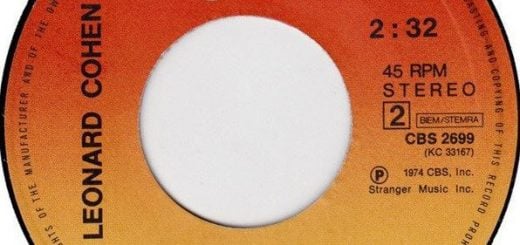Leonard Cohen’s “Hallelujah” Lyrics Meaning
This is a song in which the singer employs the word “hallelujah” in different contexts, but primarily in regards to romance. That being said, let’s delve deeper into the actual meaning of “Hallelujah”.
Verses 1 and 2
In the first two verses he uses it in relation to the well-known Biblical stories of David and Sampson. And the main similarity between the two narratives as presented is that both of these characters basically fell victim to the beauty of a woman.
The downfall of King David and Samson
David, King of Israel and Samson, the last Israelite judge are two powerful, yet controversial characters in the Bible whose lives went into somewhat of a downward spiral for a common reason; beautiful women.
The story of King David
In the case of King David, his first marriage was to Saul’s daughter Michal, given to him as his reward for delivering 200 Philistine foreskins. When he ascended the throne of Israel, he took wives namely Ahinoam, Abigail, Maacah, Haggith, Eglah and Abital, having several children by them.
Amidst these wives and many more, David still found himself at the mercy of beauty when he saw Bathsheba, wife of his army officer, Uriah, bathing.
While his men were at war, David who stayed behind lurking around his balcony spies on this woman and orders to have her brought to him. He then proceeds to have an affair with her. In an attempt to cover his tracks, David recalls Uriah from the battleground to go home and rest with his wife, who had become pregnant with David’s child.
When Uriah refuses to go, David conspires and murders him by placing him at the hottest front of the battle. David then goes on to marry Bathsheba.
David’s Punishment
However, the consequences of his actions as Nathan the prophet predicted was that the sword would never depart from his house.
The first child of David and Bathsheba dies and David is forgiven, yet he is already a victim of his choices. The punishment from God unfolds with division in David’s own house as his first son, Amnon, rapes his half-sister Tamar and is murdered by Absalom in revenge. David’s third son Absalom rebels against him and is killed. Adonijah crowns himself as king in his father’s old age but is soon ousted while Solomon succeeds David as King.
It is the above story that inspired the following lines from “Hallelujah”:
“Well your faith was strong but you needed proof
You saw her bathing on the roof
Her beauty and the moonlight overthrew ya”
The story of Samson
Of the two, Samson is the bigger victim of women’s beauty. Born and raised a Nazirite, Samson was full of supernatural strength from the Spirit of the Lord. However, he was given a condition. He was not to consume alcohol or eat unclean foods and his hair was never supposed to be cut. After a failed marriage to a Philistine, Samson goes to stay at the house of a beautiful woman known as Delilah in Gaza.
Unbeknown to him, the philistines had already bribed this lady with 1,100 silver coins to sniff out the secret of Samson’s strength in order to capture him.
While she seduces him to reveal it to her, Samson initially tricks her by saying that if he is tied with fresh bow strings, he would be powerless. For the second time, he lies that if he is tied with new ropes, he will lose his strength. Finally for the third time, he deceives her into weaving his locks into a loom.
Delilah tries all these methods to get Samson weak, but fails at all of them. Frustrated by her persistence, Samson finally yields to the temptress by revealing that God was the source of his strength. He further reveals that if his hair was cut, he would lose all his strength.
She immediately lures him to sleep and invites a servant to shave off his hair.
The Philistines are able to capture the now-weak Samson, gouge out his eyes and imprison him. When his hair grows a bit, he manages to kill himself along with 3,000 philistines by breaking the pillars of their temple, causing it to collapse on them. Although Samson’s age is not mentioned in the Bible, he had only ruled Israel for twenty years by the time of his death. His rulership could have certainly lasted longer if he hadn’t fallen victim to the seductions of Delilah.
The Sampson reference in “Hallelujah”
“She tied you to her kitchen chair
And she broke your throne and she cut your hair“
Verses 3 and 4
The next two verses focus on what appears to be the singer’s own romantic relationship. And in these instances, the prevailing attitude is that there is presently a notable degree of discontent in the romance.
Verse 5
The fifth verse is a lot more philosophical. It puts forth what is actually the true meaning of this song, according to Leonard Cohen. And that is, as stated earlier, that the word “hallelujah” can be used in different scenarios outside of its original, well-known religious context.
In other words, he interprets the term as one that can be applied to ‘his faith in life’, as in the phrase being an expression of “enthusiasm” or “emotion”. Thus this particularly part of the song more or less defines the titular word’s unconventional usage throughout.
Verse 6
The sixth verse begins somewhat as a continuation of the one prior, beginning with the singer stating his own beliefs in regards to a Higher Power. And as such, he comes off as a religious person. Cohen then apparently jumps back on the subject of the aforementioned romance. And the idea he puts forth, arguably conclusively, is that he is the victim of a broken heart.
Also, given that he begins the track by referring to the stories of David and Sampson, perhaps what he is trying to generally relay in relation to the rest of the song is that he was particularly vulnerable to falling in love with the woman whom he now has beef with due to his strong physical attraction to her.

David and his secret chord
“I’ve heard there was a secret chord that David played and it pleased the Lord”
The line above, which is one of the most significant lines in the lyrics of “Hallelujah”, references the Bible story of King David and his love for music.
If there’s anything that promptly comes to mind when the Israelite King David is mentioned, it is the fact that he was not only beloved of God, but deeply loved God himself. “The man after God’s own heart”, as the Bible puts it, was not an attribute derived simply because of his successes as a warrior and ruler, but as a worshipper.
Right from his youthful shepherd days, David had a peculiar love for music and found delight in making music for God. He was such a remarkable and skilled musician that he was recommended to play the harp when King Saul was troubled by evil spirits. Throughout his term as King, David composed numerous songs ranging from contemplative songs, psalms, narratives, praise expressions, requests, songs of hope, dirges, lively festival songs among others for almost every moment in life.
So great was his love for music and for God that David organized at least 4,000 musicians and singers, and 288 expert trainers, placing Asaph, Jeduthun and Heman in charge of them. This huge crowd of skillful musicians was present at Israel’s annual festivals which took place at the temple.
Another notable area David could never be forgotten is the playing of instruments. He was himself gifted at playing the harp, psaltery and other instruments as is evident in his mention and knowledge of them in the Psalms. He recommended the use of all kinds of instruments including lutes, ten-stringed instruments, harps, pipes, horns, trumpets, tambourines, and cymbals in the praise and worship of God.
King David’s passion and heart for the things of God, particularly his expressions of love and adoration to his maker through soothing music is perhaps the most profound trait that made him God’s beloved.
Did Leonard Cohen write “Hallelujah”?
Yes. This classic was composed exclusively by Leonard Cohen (1934-2016), which he recorded in June of 1984.
He reportedly wrote it over a 5-year span and came up with 80 verses in total. Out of these 80 verses, he chose a few for the actual recording itself.
John Lissauer, who produced this song, has fond memories of doing so alongside Cohen.
Release Date of “Hallelujah”
The track was later released by Columbia on 11 December 1984 as part of Cohen’s album “Various Positions”.
Song was originally not a hit
Initially Cohen’s song was not really a hit. But his passing in 2016, in addition to a number of other artists having made their own hit versions of “Hallelujah” throughout the years, resulted in new interest in the song. And this contributed to it charting internationally as well as finally making the Billboard Hot 100, where it peaked at number 59.
The song performed better overseas than it did in Leonard’s unofficial adopted homeland of America. It topped music charts in France and New Zealand. Furthermore it charted in almost 20 other countries.
A widely covered song!
“Hallelujah” has been dubbed one of the most-covered songs in history. Actually there are currently over over 100 notable versions of the song recorded in a number of different languages.
Indeed “Hallelujah”, in its various incarnations, had sold over five-million copies worldwide (in CD form alone) as of 2008.
The most-successful covers of “Hallelujah” are by artists such as the following:
- John Cale (UK)
- Jeff Buckley (US)
- Rufus Wainwright (US-Canada)
- K. D. Lang (Canada)
- Espen Lind (Norway)
- Alexandra Burke (UK)
- Pentatonix (US)
Actually for some of those artists (such as Jeff Buckley), this cover was perhaps the signature song of their career.
The late Jeff Buckley’s version of “Hallelujah”
The version below is undoubtedly one of the most famous and loved versions of this classic by Cohen. This version was released in 2007 (10 years after Buckley’s tragic death).
Aside Buckley and the other artists mentioned above, better-known artists Bon Jovi and Justin Timberlake have also dropped their own renditions of “Hallelujah”. However, their versions didn’t perform as well as those listed prior.
UK Singles Chart History
In fact “Hallelujah” made history on the UK Singles Chart in 2008, becoming the first track to hold the top two spots, which were respectively Alexandra Burke’s and Jeff Buckley’s version. Concurrently, Cohen’s own rendition held down the number 36 spot on the list.
Cover Versions of “Hallelujah” enriched Leonard Cohen
The countless cover versions of this classic made Cohen a truly wealthy man. For example, he reportedly pocketed £1 million himself off of royalties from Alexandra Burke’s rendition of the song.
“Hallelujah” is among the Greatest of the Greatest
“Hallelujah” has also made a couple of distinguished lists, such as being ranked number 259 on Rolling Stone’s “500 Greatest Songs of All Time”.
Moreover an entire book has been written specifically for the purpose of analyzing this song.
“Hallelujah” and the Israeli Military
The Israeli Defense Force is particularly fond of “Hallelujah”, broadcasting it on their radio station weekly at 2 AM on Saturday mornings.
Damien Rice’s Performs “Hallelujah” at Cohen’s Rock & Roll Hall of Fame Induction
During Leonard’s Cohen’s own induction into the Rock and Roll Hall of fame in 2008, “Hallelujah” was of course performed, this time by Irish singer Damien Rice.









Is this song anti-religious ?
No, I just think its’s him lamenting that he no longer believes in love after being in a bad breakup.
The song Hallelujah I believe is a reflection of his life as a poet and somewhat a believer of the biblical stories and so influenced him in his writing of the song. As a man as well as a poet like many poets experience life differently they feel emotions more strongly and life for them can effect with great
talent of putting their feelings into words. It makes it more
human and real for people to feel the emotions through words in music and song.
Absolutely beautiful. Thank you for a wonderful explanation of the lyrics!
“The song performed better overseas than it did in Leonard’s homeland of America” Leonard Cohen’s homeland was not America, he was a Canadian!
Thanks for noticing that and informing us about it. We meant to say his “unofficial adopted home”. Interesting to note is that despite Cohen being from Canada, he spent most of his adult life outside Canada. The chunk of the latter part of his life was actually spent in the United States.
During that time, he was even briefly engaged to American actress Rebecca De Mornay. He loved America so much that he had actually had multiple homes there, one of which was located in the heart of Los Angeles (where he eventually passed away at the age of 82 in 2016).
Canada is in north America.
America is a continent with several countries on it. Canada and U.S.A. are only two of the several countries being part of America, and two of the three countries part of North America. So please stop associating an entire continent to a single country. Mexican, Canadians, Venezuelians, United-Staters and Chileans are all Americans!
I love the music but don’t understand how it became such a hit when the words are so mystifying and tangled. If you don’t know the Bible well you would not know that the words are relevant to David and Sampson. It begins as a religious song and turns into a lover’s lament. I would enjoy it more if there was only the music and the words “Hallelujah” were the only ones sung.
Thank you for explaining the lyrics of a beautiful song; the writer behind it; & the evolution of the song.
What an amazing song, written by a Jewish genius, Leonard Cohen, obviously obsessed with and intertwined with religion and sex. I think it’s wrong for Christians to make the song over so it fits their narrow beliefs and use it for their religion, when that is not the true meaning of the song. In Judaism, sex is not a sin, it is exalted and encouraged as a great gift from god.
From what I have read Montreal’s Leonard Cohen was not a strong religious follower and this song seems more of a self examination of his past relationships with woman in his life, comparing them to Jewish historical figures who also had tormented relationships. He may be comparing himself to David in the Bible, also a musician whose music pleased God but who also had a weakness for physical beauty. What makes me thinks this song is less religious is his lyric that ‘Hallelujah” “You say I took the name in vain, I don’t even know the name, but if I did, what’s it to ya?” quite confrontational. Cohen also says ‘Maybe there’s a God above”, this does not sound like someone with strong religious beliefs, but he says if there is a God ” I will stand before the lord of song with nothing with nothing on my tongue but hallelujah” and he says his version of”broken” term ‘hallelujah’ can be used just exclaim happiness without a reference to God.
My understanding of the word Hallelujah is that it actually means orga-m or co-tal completion. The verse that describes the musical terms major and minor refer to the female lab-a minor fall and major lift and their movement during intercourse or when ” I moved in you. There is another reference to the female genitalia when he refers to her “flag on her marble arch”. Like quality meat is said to be well- “marbled” so also could her lab-a be the arch where her cl-tor-s (flag) is located. I have more thoughts on the Cohen’s work including his book, but space is a limiting factor here.
Post meaning